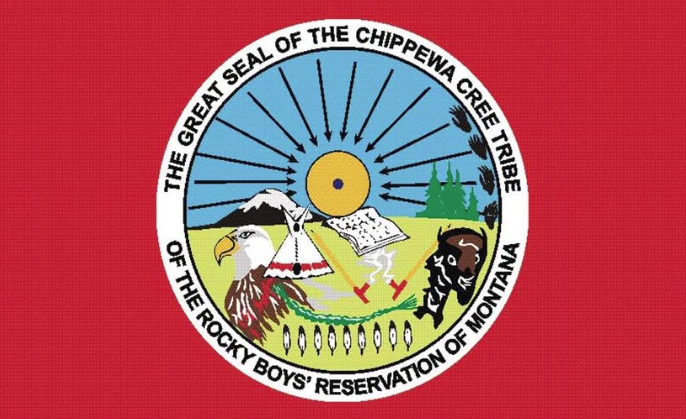Native Vote. On August 14, 2025, the Chippewa Cree Tribe of the Rocky Boy’s Reservation, along with two Native voters, filed a lawsuit in the U.S. District Court for the District of Montana. The suit challenges Chouteau County’s use of an at-large voting system for electing its Board of County Commissioners, arguing it unlawfully weakens the voting power of Native residents and has denied them representation for over a decade.

Currently, all voters in Chouteau County vote for all three commissioners, rather than electing commissioners by district. Because of this system, Native voters—who now comprise about one-third of the county’s voting-age population—have been consistently unable to elect candidates of their choice. The same three commissioners have held office under this system since at least 2010.
“We’re filing this lawsuit because Chouteau County continues to hold elections in which the Native votes don’t count,” Chippewa Cree Tribe Chairman Harlan Gopher said. “The Chippewa Cree Tribe filed this lawsuit to prevent this local government from trampling on the civil rights of our people. A fair redistricting process must respect the boundaries and voice of our Nation.”
Montana law requires counties to evaluate and update their election systems every ten years following the Census. Despite significant demographic changes and an increase in the Native voting population, Chouteau County chose to keep its outdated system and rejected efforts to explore district-based voting, which could allow Native voters to elect a commissioner who reflects their community.
“Fair representation isn’t just about numbers on a map — it’s about the dignity of knowing our voices count. Without that, we remain invisible in decisions that affect every part of our lives. This case is about making sure our community finally has the same say in who serves as commissioner as every other voter in the county,” said plaintiff and voter Tanya Schmockel, a citizen of the Chippewa Cree Tribe.
A significant portion of the county’s Native residents live near or on the Rocky Boy’s Reservation. Many essential services—such as infrastructure, road maintenance, and emergency response—require coordination between county officials and Tribal leadership.
“We need a fair election system so our voters can elect a commissioner who understands Native issues and will collaborate with the Tribe to get things done. The three local representatives currently in power do little that benefits the Native taxpayers in this part of Montana and adopted a system that prevents us from being able to vote them out. Until our votes matter, too, we’re stuck under their thumb,” plaintiff and voter Ken Morsette, a citizen of the Chippewa Cree Tribe, commented.
The plaintiffs are represented by the Native American Rights Fund (NARF), the American Civil Liberties Union (ACLU) Voting Rights Project, and the ACLU of Montana.“Since 2010, Native voters in Chouteau County have been trapped in a system where their votes make no difference,” said NARF Staff Attorney Samantha Blencke. “That’s not just wrong — it’s illegal. Our democracy is supposed to guarantee fair representation to all communities.”
“Montana has a long and unfortunate history of disenfranchising Indigenous voters,” Akilah Deernose, Executive Director of the ACLU of Montana said. “Once again we are forced to rely on the Courts to ensure that Indigenous voters enjoy the same rights and privileges as non-Native voters.”
Read more about the fight for fair voting in Chouteau County.
More Stories Like This
Native News Weekly (August 25, 2024): D.C. BriefsMonday Morning (March 2, 2026): Articles You May Have Missed This Past Weekend
Native News Weekly (March 1, 2026): D.C. Briefs
Scope Narrowed, Report Withheld: Questions Mount Over Michigan Boarding School Study
Zuni Youth Enrichment Project Announces Family Engagement Night and Spring Break Youth Programming
Help us defend tribal sovereignty.
At Native News Online, our mission is rooted in telling the stories that strengthen sovereignty and uplift Indigenous voices — not just at year’s end, but every single day.
Because of your generosity last year, we were able to keep our reporters on the ground in tribal communities, at national gatherings and in the halls of Congress — covering the issues that matter most to Indian Country: sovereignty, culture, education, health and economic opportunity.
That support sustained us through a tough year in 2025. Now, as we look to the year ahead, we need your help right now to ensure warrior journalism remains strong — reporting that defends tribal sovereignty, amplifies Native truth, and holds power accountable.
 The stakes couldn't be higher. Your support keeps Native voices heard, Native stories told and Native sovereignty defended.
The stakes couldn't be higher. Your support keeps Native voices heard, Native stories told and Native sovereignty defended.
Stand with Warrior Journalism today.
Levi Rickert (Potawatomi), Editor & Publisher


